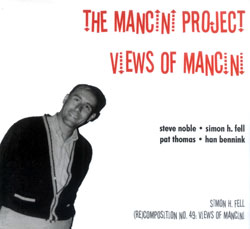
Simon H. Fell, Steve Noble, Pat Thomas and Han Bennink performing the works of Mancini scored for a jazz piano trio, plus 'sound manipulation artist' and prerecorded tapes.
Out of Stock
Quantity in Basket: None
Log In to use our Wish List
Shipping Weight: 4.00 units
Sample The Album:
Pat Thomas-piano
Simon H. Fell-doublebass, prerecordings
Han Bennink-drums
Steve Noble-turntables, manipulations
Click an artist name above to see in-stock items for that artist.
UPC: 649849983176
Label: FMR
Catalog ID: FMR 263-0808
Squidco Product Code: 11986
Format: CD
Condition: New
Released: 2008
Country: Great Britain
Packaging: Digipack
All music composed by Henry Mancini, arranged by Simon H. Fell except Improvisation 1 and Improvisation 4 composed by Pat Thomas/Simon H. Fell/Han Bennink/Steve Noble. Recorded at Barefoot Studios, Brixton, London, 28th January 2003 Engineered by Simon H. Fell Produced by Steve Noble & Simon H. Fell.
"Ever been disappointed by a recording or concert where avant-garde / creative / experimental artists pay tribute to a key mainstream figure? I know I have (but of course I'm naming no names). All too often, it seems the experimentalists are so seduced by playing 'normal' music (or perhaps are keen to demonstrate that they can play 'properly') that their avant-garde credentials appear to wither away.
Not so here, I'm glad to say. The Mancini Projecthas the specific intention of combining a love of the familiar with a relish of the experimental, squaring that particular circle and hopefully producing a true fusion; a meeting of musical minds (and generations) rather than a simplistic and fashionable nod to mainstream accessibility.
My Composition No. 49: Views Of Mancini was originally written for London's Club Room as part of their Departure Lounge season in the Summer of 1999. The piece was scored for a jazz piano trio, plus 'sound manipulation artist' and prerecorded tapes, and used a combination of free improvisation, contemporary jazz, experimental sound manipulation and electroacoustic composition to reflect upon a series of well and less well known Mancini compositions. (For many years my experimental work has been subsidised by my playing more 'commercial' music, and I had long wanted to write a piece which reflected my love of both repertoires.) The suite as recorded here (some 4 years later) includes partly-notated partly-improvised organic reconstructions of Mancini originals, pieces in which found objects are combined with layers of improvisation and notation, and free improvisations using Mancini as raw sonic material. To put it in a nutshell, these are all great tunes, and it just so happened that I felt I'd like to try play- ing this repertoire with 'experimental' musicians in an 'avant-garde' way - and this is what came out. At least we didn't pull our punches..."-Simon H. Fell

The Squid's Ear!
Artist Biographies
• Show Bio for Pat Thomas "Born 27 July 1960; Piano, electronics. Pat Thomas started playing at the age of 8 and studied classical music and played reggae. He began playing jazz at sixteen after seeing Oscar Peterson on television then listened to snatches of jazz on the radio before, in 1979, playing his first serious improvised gigs. From 1986 he played with Ghosts which was Pete McPhail and Matt Lewis. In addition to programming his keyboards, Pat Thomas also utilises prerecorded tapes. He told Chris Blackford (1991), 'As far as the tapes are concerned I'll probably just sit in front of the TV and tape whatever's going on and so some editing afterward to decide what might be useful. ...But I don't actually put a label on each tape saying what's on there, so when I come to use them I don't know what I'm going to be playing. That obviously prevents me from setting things up. I pick them at random and see what happens. So I'm just as surprised as anybody else at what comes out'. In 1988 he was awarded an Arts Council Jazz Bursary to write three new electroacoustic compositions for his ten-piece ensemble, Monads: Roger Turner and Matt Lewis, percussion; Pete McPhail, WX7 wind synthesizer; Neil Palmer, turntables; Phil Minton, voice; Phil Durrant, violin; Marcio Mattos, bass; Jon Corbett, trumpet; Geoff Searle, drum machines. The intention was to feature different aspects of electronics using improvisation so, for example, one piece - Dialogue - featured Pete McPhail and Neil Palmer, another concentrated on the interaction of percussionists and drum machines, and a third piece had Phil Minton and Jon Corbett improvising with a computer. The pieces were performed at the Crawley Outside-In Festival of new music in 1989. Pat Thomas was invited by Derek Bailey to play in Company Week in 1990 and 1991 and he also took part in the Ist International Symposium for Free Improvisation in Bremen with the guitarist. He has been a member of the Tony Oxley Quartet (documented on Incus CD 15) and played in Oxley's Angular Apron along with Larry Stabbins, Manfred Schoof and Sirone at the 8th Ruhr Jazz Meeting and in the percussionist's Celebration Orchestra. He plays with Lol Coxhill in a range of combinations from duo to being a member of 'Before my time', is a member of Mike Cooper's Continental Drift, and he has a well established duo with percussionist Mark Sanders and a trio with Steve Beresford and Francine Luce. In 1992 Pat Thomas formed the quartet Scatter with Phil Minton, Roger Turner and Dave Tucker; funded by the Arts Council they toured the UK in 1993 and again at the beginning of 1997. On the 'Festival circuit', Pat Thomas has appeared at: the Young Improvisors Festival at the Korzo Theatre, Den Haag (with Jim O'Rourke, Mats Gustafsson and Alexander Frangenheim); Angelica 95 in Bologna, Italy; the Stuttgart 5th Festival of Improvised Music 96 (with Fred Frith, Shelly Hirsch, Carlos Zingaro and others); and the 3rd International Festival 96 in Budapest (with Evan Parker, Phil Minton, John Russell and Roger Turner). ^ Hide Bio for Pat Thomas • Show Bio for Simon H. Fell Simon H. Fell (b. Dewsbury, Yorkshire, 13 January 1959) is a bassist and composer; he is primarily known for his work as a free improviser and the composer of ambitiously complex post-serialist works. Fell began playing double bass in 1973. From 1978 to 1981 he read English Literature at Fitzwilliam College of Cambridge University,[1] an interest that led to ties to many of the poets associated with the Cambridge scene (a later work, Music for 10(0), involves settings of texts by the poet/music journalist/provocateur Ben Watson). Fell's most notable early group was a group with drummer Paul Hession and saxophonist Alan Wilkinson, a free-jazz trio that was exceedingly fast and furious even by the standards of that genre. Their work was primarily released as cassettes and CDs on Fell's label Bruce's Fingers, including Bogey's and the group's only studio album, foom! foom! Their most sonically extreme statement, however, was the grainily recorded The Horrors of Darmstadt (Shock). (Its title is a sarcastic quotation from a BBC announcer concerning the avant-garde Darmstadt School of composers.) Other groups in which Fell is or was a member include the free jazz trio Badland (led by saxophonist Simon Rose; initially the drummer was Mark Sanders, with Steve Noble subsequently taking over the role), the improvising string+percussion ensemble ZFP (with Carlos Zingaro, Marcio Mattos and Mark Sanders), and SFQ, a quartet/quintet with changing membership, though clarinettist Alex Ward has been a constant. (Fell's 2001 version of his 70-minute SFQ composition Thirteen Rectangles was broadcast twice by the BBC and subsequently nominated for the 'new work' award in the 2002 BBC Jazz Awards.) In sharp contrast to the uproar of Hession/Wilkinson/Fell, the trio IST (with Rhodri Davies and Mark Wastell) was one of the seminal groups in the development of the ultra-quiet aesthetic now generally called "EAI" or "electroacoustic improvisation". Fell has also performed in many other ensembles, including the London Improvisers Orchestra and Derek Bailey's Company Week. Fell's major sequence of compositions is titled Compilation (to date, four such projects have been issued). Despite the governing title, these are not collections of previous material but new, large-scale works. The musical language makes overt use of serialist procedures (such as tone rows, retrograde structures, &c), as well as many other techniques: extensive studio layering, overdubbing and reordering of material (so that seemingly "live" performances may be the result of carefully edited-together improvisations and/or notated material), and use of aleatoric techniques to "degrade" or distort precomposed structures into new shapes. Free improvisation, rock and jazz all form key parts of the musical language; one section of Compilation IV even includes a simultaneous hommage to Karlheinz Stockhausen and Henry Mancini. The cast of musicians drawn on for these pieces usually includes a mix of classically trained players, jazzers and free improvising musicians, as well as wild cards like the noise guitarist Stefan Jaworzyn. While virtuoso players such as Evan Parker and John Butcher are essential to the projects, Fell often deliberately makes use of amateur or student musicians, too, not as a makeshift but as an intentionally democratizing and less predictable element. ^ Hide Bio for Simon H. Fell • Show Bio for Han Bennink "Drummer and multi-instrumentalist Han Bennink was born in Zaandam near Amsterdam in 1942. His first percussion instrument was a kitchen chair. Later his father, an orchestra percussionist, supplied him with a more conventional outfit, but Han never lost his taste for coaxing sounds from unlikely objects he finds backstage at concerts. He is still very fond of playing chairs. In Holland in the 1960s, Bennink was quickly recognized as an uncommonly versatile drummer. As a hard swinger in the tradition of his hero Kenny Clarke, he accompanied touring American jazz stars, including Sonny Rollins, Ben Webster, Wes Montgomery, Johnny Griffin, Eric Dolphy and Dexter Gordon. He is heard with Gordon on the 1969 album "Live at Amsterdam Paradiso" (on the Affinity label) and with Dolphy on 1964s "Last Date" (PolyGram). At the same time, Bennink participated in the creation of a European improvised music which began to evolve a new identity, apart from its jazz roots. With fellow Dutch pioneers, pianist Misha Mengelberg and saxophonist Willem Breuker, he founded the musicians collective Instant Composers Pool in 1967. Bennink anchored various bands led by Mengelberg or Breuker, and appeared in their comic music-theater productions. Bennink attended art school in the 1960s, and is also a successful visual artist in several media, often constructing sculpture from found objects, which may include broken drum heads and sticks. He has designed the covers for many LPs and CDs on which he appears. Bennink is represented by Amsterdam's Galerie Espace, and has been the subject of several one-man shows, including one at the Gemeente Museum in the Hague in 1995. In 1966, Bennink played the US's Newport Jazz Festival with the Mengelberg quartet. From the late 1960s through the '70s Bennink collaborated frequently with Danish, German, English and Belgian musicians, notably saxophonists John Tchicai and Peter Broetzmann, guitarist Derek Bailey and pianist Fred van Hove. Bennink, Broetzmann and van Hove had a longstanding trio well documented on FMP Records. There Bennink also showcased his talents on clarinet, trombone, soprano saxophone and many other instruments, also featured in a series of solo albums he began in 1971. Bennink's many recordings from the 1980s include sessions with Mengelberg's ICP Orchestra (where he remains), South African bassist Harry Miller, soprano saxophonist Steve Lacy, trombonists Roswell Rudd and George Lewis, and big-bandleaders Sean Bergin and Andy Sheppard. From 1988 to'98 Bennink's main vehicle was Clusone 3, with saxophonist and clarinetist Michael Moore and cellist Ernst Reijseger, a band noted for its free-wheeling mix of swinging jazz standards, wide-open improvising, and tender ballads. Clusone played Europe and North America, West Africa, China, Vietnam and Australia, and recorded five CDs for Gramavision, hat Art and Ramboy. Nowadays he is frequently heard with tenor saxophonist Tobias Delius's quartet and in a trio with pianist/keyboardist Cor Fuhler and bassist Wilbert de Joode, and he still collaborates occasionally with jazz luminaries such as Johnny Griffin, Von Freeman and Ray Anderson. A conspicuous feature of Bennink's musical life since the 1960s is the spontaneous duo concert with musicians of many nationalities and musical inclinations; in the '90s he recorded in duo with among others pianists Mengelberg, Irene Schweizer and Myra Melford, guitarist Eugene Chadbourne, trumpeter Dave Douglas and tenor saxophonist Ellery Eskelin. Since 2008 Han Bennink has his own Han Bennink Trio consisting of Han Bennink, Joachim Badenhorst on clarinet and Simon Toldam on piano." ^ Hide Bio for Han Bennink • Show Bio for Steve Noble "Steve Noble is London's leading drummer, a fearless and constantly inventive improviser whose super-precise, ultra-propulsive and hyper-detailed playing has galvanized encounters with Derek Bailey, Matthew Shipp, Ishmael Wadada Leo Smith, Stephen O'Malley, Joe McPhee, Alex Ward, Rhodri Davies and many, many more. In the early eighties, Noble played with the Nigerian master drummer Elkan Ogunde, Rip Rig and Panic, Brion Gysin and the Bow Gamelan Ensemble, before going on to work with the pianist Alex Maguire and with Derek Bailey (including Company Weeks 1987, 89 and 90). He was featured in the Bailey's excellent TV series on Improvisation for Channel 4 based on his book 'Improvisation; its nature and practise'. He has toured and performed throughout Europe, Africa and America and currently leads the groups N.E.W (with John Edwards and Alex Ward) and DECOY (with John Edwards and Alexander Hawkins)." ^ Hide Bio for Steve Noble
11/20/2024
Have a better biography or biography source? Please Contact Us so that we can update this biography.
• his compositions for The London Improvisers' Orchestra (Papers, Happy Families, Kln Klang, Ellington 100 (Strayhorn 85), Morton's Mobile, Too Busy and Three Mondrians) (1998-2004)
• Kaleidozyklen, a 60-minute piece for improvising double bassist and orchestra (2000)
• Thirteen New Inventions, a major solo piano piece commissioned by Philip Thomas (2005)
• the concert-length BBC Radio 3 commission, Positions & Descriptions (for 18 musicians & prerecorded materials), premiered at the Huddersfield Contemporary Music Festival (2007)
• a 1-hour suite for sextet, The Ragging Of Time, commissioned by the Marsden Jazz Festival (2014)
-Wikipedia (https://en.wikipedia.org/wiki/Simon_Fell)
11/20/2024
Have a better biography or biography source? Please Contact Us so that we can update this biography.
11/20/2024
Have a better biography or biography source? Please Contact Us so that we can update this biography.
11/20/2024
Have a better biography or biography source? Please Contact Us so that we can update this biography.
Track Listing:
1. The Days Of Wine And Roses 9:07
2. Charade 4:59
3. Moon River/Dreamsville 4:05
4. Peter Gunn 5:23
5. Improvisation 1 6:20
6. The Pink Panther 4:28
7. Improvisation 4 6:23
8. A Shot In The Dark 5:54
Improvised Music
Jazz
European Improvisation, Composition and Experimental Forms
London & UK Improv & Related Scenes
Turntablists
FMR Records
Quartet Recordings
Search for other titles on the label:
FMR.


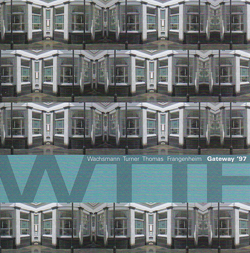

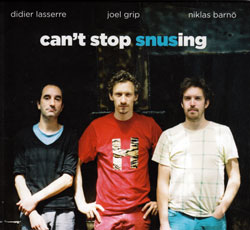
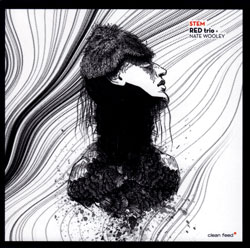
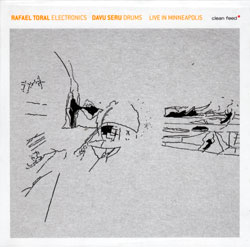
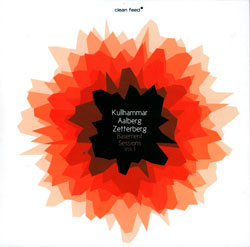
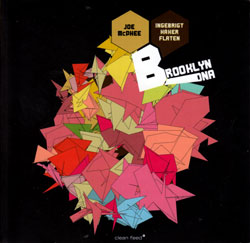
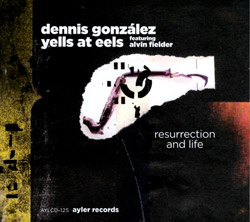
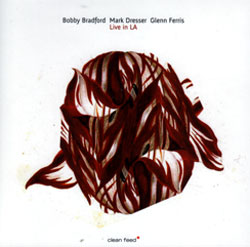
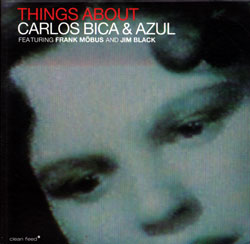
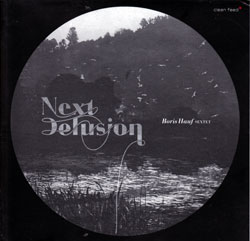
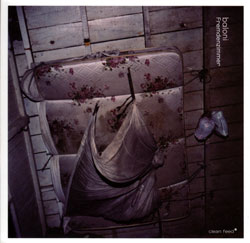
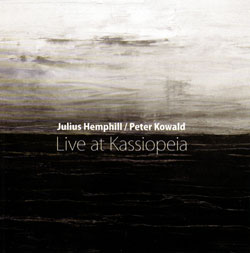
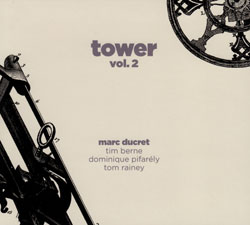
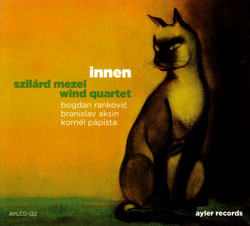
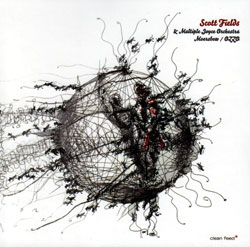
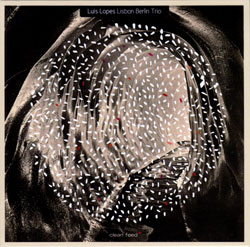
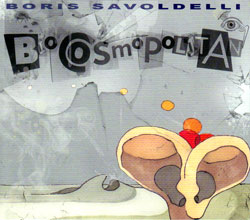
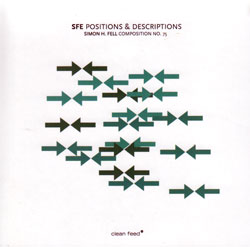
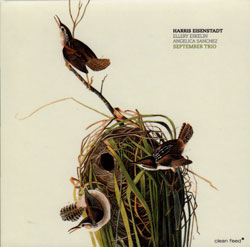
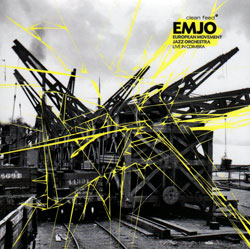
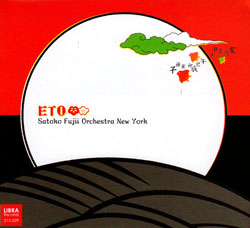
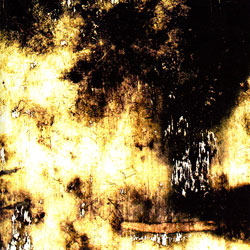
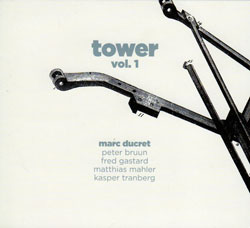


![Guy, Barry / Ken Vandermark: Occasional Poems [2 CDs]](https://www.teuthida.com/productImages/misc4/34849.jpg)
![Novoa / Carter / Mela Trio: Vol.1 [VINYL]](https://www.teuthida.com/productImages/misc4/35236.jpg)


![Elephant9 : Mythical River [VINYL]](https://www.teuthida.com/productImages/misc4/34624.jpg)
![Evans, Peter (Evans / Eldh / Black): Extra [VINYL]](https://www.teuthida.com/productImages/misc4/35279.jpg)

![McPhee, Joe: Straight Up, Without Wings [BOOK]](https://www.teuthida.com/productImages/misc4/35454.jpg)
![Jeck, Philip: rpm [2 CDs]](https://www.teuthida.com/productImages/misc4/35455.jpg)













![Barker / Parker / Irabagon: Bakunawa [VINYL]](https://www.teuthida.com/productImages/misc4/35533.jpg)
![Blaser, Samuel / Marc Ducret / Peter Bruun: Dark Was The Night, Cold Was The Ground [VINYL 10-inch]](https://www.teuthida.com/productImages/misc4/35492.jpg)








![Warren, Kenny (Warren / Hoffman / Ellman): Sweet World [VINYL]](https://www.teuthida.com/productImages/misc4/35451.jpg)




![Blake, Ran / Dave Knife Fabris: Live Amsterdam 2006, First Visit [CD + POSTCARDS]](https://www.teuthida.com/productImages/misc4/35275.jpg)













![DNS: Taking Big Bites Of The Khandas Three Cafes Deep [2 CDs]](https://www.teuthida.com/productImages/misc4/35334.jpg)




![Cleaver, Gerald: The Process [VINYL]](https://www.teuthida.com/productImages/misc4/34966.jpg)




![Alva Noto: HYbr:ID II [VINYL 2 LPs]](https://www.teuthida.com/productImages/misc4/35201.jpg)

![Baron, Derek / Luke Martin: Distinct and Concealed [CASSETTE + DOWNLOAD]](https://www.teuthida.com/productImages/misc4/35079.jpg)

![Lyle, Erica Dawn : Colonial Motels [CASSETTE + DOWNLOAD]](https://www.teuthida.com/productImages/misc4/35080.jpg)









![Sanna, Claudio: Compositori Sardi Contemporanei II [2 CDs]](https://www.teuthida.com/productImages/misc4/35317.jpg)







![Zurria, Manuel: Fame di Vento [3 CDs]](https://www.teuthida.com/productImages/misc4/35167.jpg)

![Granberg, Magnus / Nattens Inbrott / Skogen: Holde Traume, Kehret Wieder! [2 CDs]](https://www.teuthida.com/productImages/misc4/35038.jpg)
![Frey, Jurg: Outermost Melodie [2 CDs]](https://www.teuthida.com/productImages/misc4/35039.jpg)

![Pavone, Jessica: Reverse Bloom [VINYL]](https://www.teuthida.com/productImages/misc4/34895.jpg)




![Modney (Modney / Wooley / Gentile / Roberts / Pluta / Symthe / ...): Ascending Primes [2 CDs]](https://www.teuthida.com/productImages/misc4/34852.jpg)









![Elephant9 with Terje Rypdal: Catching Fire [VINYL 2 LPs]](https://www.teuthida.com/productImages/misc4/35355.jpg)
![Deerlady (Obomsawin, Mali / Magdalena Abrego): Greatest Hits [VINYL]](https://www.teuthida.com/productImages/misc4/34876.jpg)




![Haino, Keiji: Black Blues [2 CDs]](https://www.teuthida.com/productImages/misc4/35109.jpg)



![Surplus 1980: Illusion of Consistency [CD]](https://www.teuthida.com/productImages/misc4/35069.jpg)
![Staiano, Moe: Away Towards the Light [VINYL + DOWNLOAD]](https://www.teuthida.com/productImages/misc4/35037.jpg)



![Caveira (Gomes / Sousa / Abras / Ferrandini): Ficar Vivo [VINYL]](https://www.teuthida.com/productImages/misc4/34643.jpg)
![Gregg, J. J. / David Van Auken: Lunar Prairie [CD w/ DOWNLOAD]](https://www.teuthida.com/productImages/misc4/34611.jpg)

![Coultrain: Mundus [VINYL]](https://www.teuthida.com/productImages/misc4/32439.jpg)
![Mattin: Songbook #6 [VINYL]](https://www.teuthida.com/productImages/misc4/27317.jpg)
![Punkappella: Wake Up [7-inch VINYL]](https://www.teuthida.com/productImages/misc4/17519.jpg)
![Residents, The: WARNING: UNiNC.: Live And Experimental Recordings 1971-1972 [VINYL 2 LPs]](https://www.teuthida.com/productImages/misc4/31521.jpg)
![Coultrain: Phantasmagoria [VINYL]](https://www.teuthida.com/productImages/misc4/30142.jpg)
![Lennon, Sean Ono: Asterisms [VINYL]](https://www.teuthida.com/productImages/misc4/34517.jpg)

![Coley, Byron: Dating Tips for Touring Bands [VINYL]](https://www.teuthida.com/productImages/misc4/17906.jpg)

![Lost Kisses: My Life is Sad & Funny [DVD]](https://www.teuthida.com/productImages/misc4/lostKissesDVD.jpg)